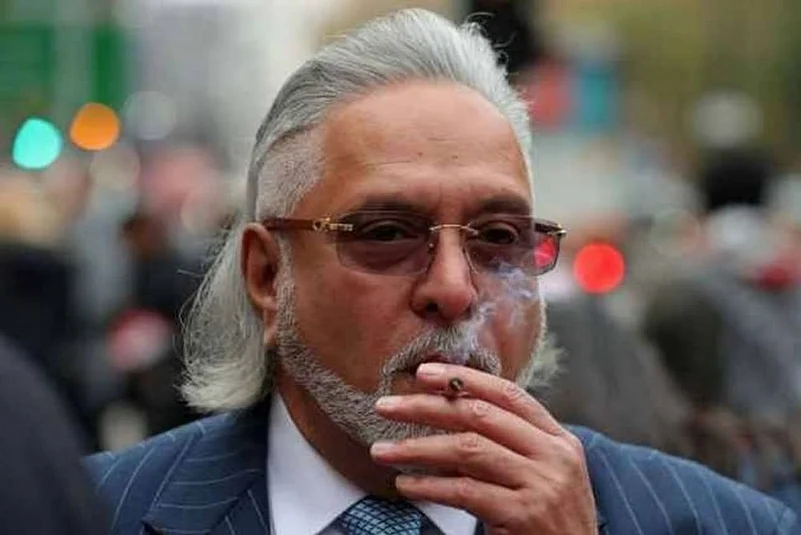Amid concerns of extradition and mounting pressure of India’s efforts to get him back on the Indian soil, Vijay Mallya has applied to Home Secretary Priti Patel for “another route” to be able to stay in the UK, the liquor tycoon's barrister representing him in bankruptcy proceedings in the High Court in London confirmed during a remote hearing on Friday.
The 65-year-old businessman, whose legal challenge to the Indian government’s extradition request was turned down at the Supreme Court level in the UK last year, remains in Britain on bail until Patel signs off on the order for him to be extradited to India to face charges of fraud and money laundering related to the now-defunct Kingfisher Airlines.
The UK Home Office has so far only confirmed on background that a confidential legal process remains ongoing before the extradition order can be executed.
This had raised widespread speculation that Mallya had sought asylum in the UK, details of which are neither confirmed nor denied by the Home Office in Britain while an application is pending.
“The extradition was upheld but he [Mallya] is still here because as you know there is another route for him to apply to the Secretary of State [Patel] for status,” said Mallya’s barrister Philip Marshall, when specifically asked by Deputy Insolvency and Companies Court Judge Nigel Barnett about the status of the extradition proceedings.
It is likely that the reference is to an asylum route which, according to legal experts, would depend upon whether Mallya applied for asylum prior to the extradition request or after.
“He would need to argue much stronger grounds. There are specific rules that detail when asylum is a bar to extradition, it is clear that claiming asylum after all appeals have been exhausted is unlikely to be considered a valid claim to asylum protection,” explains Toby Cadman, co-founder of Guernica 37 International Justice Chambers and a UK-based extradition specialist.
The court on Friday also heard how Mallya, who submitted written evidence for the hearing, was in a "constrained" position as a close relative had passed away as a result of COVID-19.
The remote hearing in the commercial division of the High Court in London was to establish whether the court can sanction substantial sums towards Mallya’s living expenses and legal fees from the sale of a French luxury property Le Grand Jardin last year.
The money is held in the UK’s Court Funds Office (CFO) as part of bankruptcy proceedings brought by a consortium of Indian banks led by the State Bank of India (SBI) in pursuit of unpaid loans.
Mallya’s legal team argues that he should be sanctioned the required funds to meet mounting legal costs in India and the UK, which includes costs to be paid to the UK’s Crown Prosecution Service (CPS) which argued the extradition proceedings on behalf of the Indian authorities.
The lawyers for the banks have challenged this as it would dissipate the funds owed to his creditors towards speculative and "unreasonable" costs while other sources of funds remain available to the businessman.
The banks’ barrister, Tony Beswetherick, argued that Mallya's latest written evidence shows that he “does have other assets that he can utilise to meet the very significant costs he is seeking to have validated and paid (including two yachts that he has put into storage in Southampton, debts owed to him by family trusts, and cars in storage in France)”.
However, Mallya’s lawyers pointed to a worldwide freezing order in place that constrains access to his assets and the conclusion in October last year of his consultancy arrangement for a Formula One team meant he had no other sources of income at his disposal.
They claimed the conduct of the banks was “highly oppressive” and an attempt to “starve Dr Mallya of the funds”.
At the end of a half-day hearing, the judge reserved his judgment on the issue of access to court-held funds and is expected to hand down his ruling in the coming weeks.
The hearing forms part of a series as both sides make arguments for and against a bankruptcy order against Mallya in the UK.
(With PTI inputs.)


























